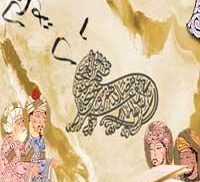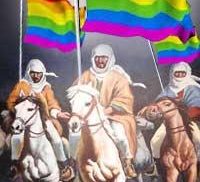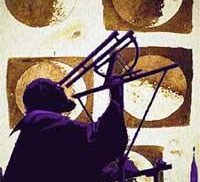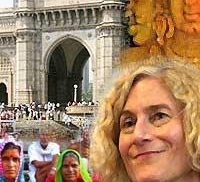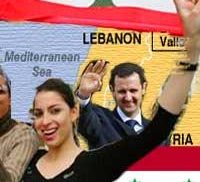This dossier stems from the debate sparked by Elizabeth Suzanne Kassab’s article—which opens this collection—on the transformation of the Arab intellectual scene after 2011. Her notion of a “new contemporary” in Arab thought prompted a series of contributions that do not aim to offer solutions, but rather to raise new questions, probe unresolved issues, and put forward critical perspectives. Bringing together Kassab’s essay and two related pieces, the dossier explores how Arab thought is redefining itself in light of the uprisings, the failures of political transitions, and the moral and intellectual rupture marked by Gaza.
Dossiers
- «The Swiss referendum has revealed that Islam’s visibility is distressing in the eyes of Europeans – writes Nilüfer Göle, Director of the Ecole des Hautes Etudes en Sciences Sociales in Paris – The concept of acknowledging Islam and Muslims as a phenomenon endogenous to Swiss society has been rejected.» On November 29th a majority of Swiss citizens approved a constitutional banning the construction of new minarets in their country. It was a shocking vote in a country where Muslims are a well integrated minority. How could this have happened? Is this a warning for all of Europe?
- We Westerners still see the Arab world as a monolithic block, and as such we see its contemporary literary production, which seems as one, simply because it is all written in the same language. There are instead 22 countries in the Arab League and each has its own history, explains Isabella Camera D’Afflitto. In the Arabian Peninsula (from Saudi Arabia to the Emirates and including Yemen), for example, a new generation of novelists has emerged in recent years, daring to address burning issues, speaking of slavery, taboos, traditions and superstitions, social disruption, individual responsibilities and relationships between men and women.
- In spite of the fact that according to President Ahmadinejad «this phenomenon» does not exist in Iran, homosexuals are a reality throughout the Arab-Islamic world. Theirs is not an easy life, although, as the Lebanese movement Helem proves, they are beginning to speak out. Is their discrimination “written” in the Koran or explained by the same conservative culture we also see in the West? Opposing opinions concerning the spread of the homosexual movement in the Arab world are expressed by activist Hossein Alizadeh and by Professor Joseph Massad.
- In times of economic crisis, when European nations close their borders, expelling legal and illegal immigrants, the philosopher Carlos Thiebaut believes that to speak of tolerance and acceptance may seem bitterly ironic. And yet, it is all the more necessary. We discuss this with Mario Tronco, who with his Orchestra di Piazza Vittorio uplifts the name of one country, Italy, which does not stand out for its respect for immigrants and those who are different.
- Twenty years ago, on November 9th 1989, tens of thousands of Berliners crossed the border between the East and the West and started to knock down the wall that for 28 years had divided their city and with it a whole continent. Slowly the people of the East returned to freedom and democracy thanks above all to the courage of Mikhail Gorbaciov and Helmut Kohl. Resetdoc revisits those events that posed the foundations for the reunification of Europe.
- In December 1609 while observing the sky above Padua, Galileo Galilei carried out his first astronomical observations using a telescope. Exactly four hundred years later we remember this great Western scientist and intellectual, the modernity of his methods, his difficult relationship with the Church, his humanist culture and above all the dramatic choices made by a free dissident forced to recant by a tyrannical power.
- In Verona, Italy, a Moroccan woman was asked to leave a municipal swimming pool because she was wearing a ‘burkini,’ an ‘Islamically correct’ swimsuit. The reason was that she “frightened the children.” The same thing happened a few days earlier not far from Paris. The xenophobe right exalted, the media made comments ranging from expressing concern to amusement, while the public debated the matter. Can the ‘burkini’ really be considered a “Islamic” swimsuit? Does it humiliate women? In the meantime, in Afghanistan…
- We are accustomed to believing that Arab women experience conditions that are worse than those of western ones. And yet in the western media women are increasingly subject to the “tyranny of beauty” (with consequences that are also political as last summer’s Italian gossip columns proved). There are on the contrary new and interesting perspectives in the Arab media. Why then is the Islamic veil debated so much in the West, when our own TV channels broadcast an increasingly emphasised eroticisation of the female body?
- India is an almost insuperable laboratory in the battles between “two different civilisations” within one same nation. One appreciating multiple identities and people coming from various traditions, the other feeling safe only when those who are different are alienated. In India as it really is today, the problems of the world are far better expressed than in Huntington-styled analyses showing the West besieged by young Muslims, fuelled by religion, the poor’s new vitamin.
- The winner of the June elections held in the Lebanon, the anti-Syrian collation led by Saad Hariri is encountering numerous problems in forming a new government. Hence Syria continues to powerfully influence Lebanese politics. The truth however is that, as Barack Obama knows only too well, peace in the Middle East depends on Damascus.




